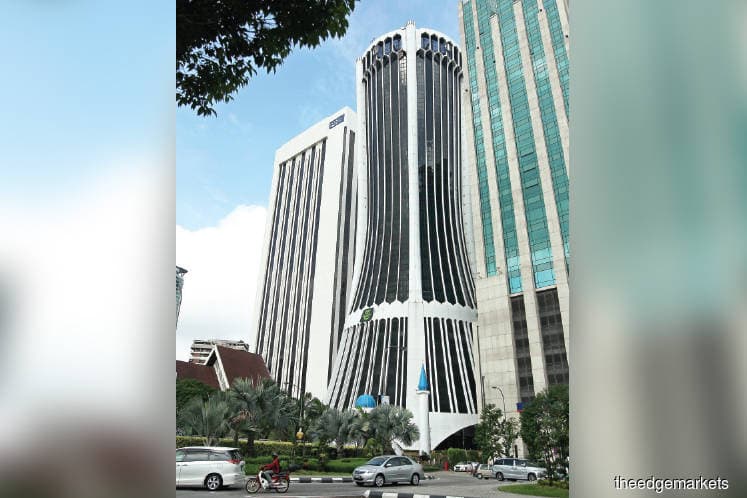
This article first appeared in The Edge Malaysia Weekly on December 31, 2018 - January 6, 2019
IN 2015, there were already indications that all was not well at Lembaga Tabung Haji (TH) when several stakeholders, including former Bank Negara Malaysia governor Tan Sri Zeti Akhtar Aziz and PKR politician Rafizi Ramli, voiced concern over the state of its financial affairs.
But few could have fathomed how deep the pilgrim fund’s troubles ran.
The damage — revealed to the public bit by bit since the start of this month by the new Pakatan Harapan government — was unravelled when a new team came on board the fund in July and immediately started probing its accounts and past transactions. The government appointed former Securities Commission Malaysia chairman Tan Sri Mohd Nor Yusof and former Bank Islam Malaysia Bhd CEO Datuk Seri Zukri Samat as TH’s chairman and CEO respectively.
Among their key findings was that TH had inflated its profits in the last few years to justify paying hibah or dividends to depositors. It had effectively paid out dividends using depositors’ savings since 2014.
Minister in the Prime Minister’s Department Datuk Seri Mujahid Yusof, who is in charge of TH, revealed on Dec 10 that since 2014, the fund had acted in contravention of the Tabung Haji Act under which it is regulated as it had paid out dividends even though its liabilities had exceeded its assets.
Section 22 of the Act states that TH must fulfil two conditions to declare dividends — it must have more assets than liabilities and it must be profitable.
Tabled recently in parliament, TH’s FY2017 accounts showed RM70.3 billion in assets and RM74.4 billion in liabilities, or a deficit of RM4.1 billion, as at Dec 31, 2017.
PricewaterhouseCoopers (PwC), hired by TH to conduct an independent review of the fund’s financial position as at end-December 2017, found that at times profits generated by TH were based on transactions that did not generate cash.
For instance, a RM553 million gain from the disposal of BIMB Holdings Bhd shares, which were shortly after bought back by TH; and RM510 million in dividends declared by subsidiaries, of which RM222 million remained unpaid.
“Although the transactions appear commercial, we understand that the intention was to enable TH to report a higher profit for the purpose of distribution to depositors,” PwC said in a report viewed by The Edge.
It is learnt that there were also structural issues to contend with as 1.3% of the fund’s nine million-odd depositors owned half of the RM73 billion it manages on their behalf. This indicates the rich had been parking big sums of money there to take advantage of its generous dividends over the years. But this heavily lopsided exposure to a small number of depositors is risky for TH.
On Nov 30, TH lodged two police reports against former chairman Datuk Seri Abdul Azeez Abdul Rahim, former CEOs Tan Sri Ismee Ismail and Datuk Seri Johan Abdullah, as well as four senior management officers.
In the first report, it alleges that RM22 million from Yayasan Tabung Haji’s 2017 programme was spent on activities with political inclinations, in contravention of the memorandum and articles of association of the charitable entity. TH had contributed RM7 million to the programme. Its trustees then were Abdul Azeez, Ismee, Johan, chief operating officer Datuk Adi Azuan and chief financial officer Datuk Rozaida Omar.
In the second report, TH alleges that Ismee, Hazlina Mohd Khalid (legal adviser) and Rifina Md Ariff (senior general manager of corporate services and real estate) misrepresented and withheld material information related to the fund’s sale in 2012 of its 95% stake in PT TH Indo Plantations to PT Borneo Pacific for US$910 million. Six years on, TH has yet to receive the full proceeds.
A week later, Trurich Resources Sdn Bhd — a company co-owned by TH and FGV Holdings Bhd — lodged a police report against five individuals, including Ismee, for misleading it into overpaying for oil palm plantations in Indonesia, which it bought in 2008 and 2009 for US$58 million.
That things went so horribly wrong for an institution that was set up 55 years ago with the noblest of intentions — to help Muslims save for their pilgrimage to Mecca and to invest profitably in accordance with Islamic principles — is downright shameful.
TH’s finances have an impact on the government as deposits are fully guaranteed by the latter.
It is clear now that its problems stem from the lack of proper regulatory oversight. From Jan 1, 2019, TH will be rightly placed under the supervision of Bank Negara.
A turnaround plan for the troubled fund will soon be underway, a move that will enable its assets to be equal to its liabilities. This is important as only then can it pay dividends to its depositors.
Under the plan, a special-purpose vehicle (SPV) to be owned by the Ministry of Finance will acquire RM19.9 billion worth of TH’s underperforming properties and equities at book value, in exchange for seven-year sukuk and Islamic redeemable convertible preference shares of the same value. The SPV will then work to recover the value of those assets.
But the fact that TH’s past caretakers managed to so blatantly pull wool over the eyes of its Muslim contributors, gives it the dubious distinction of being one of our turkeys of the year.
Save by subscribing to us for your print and/or digital copy.
P/S: The Edge is also available on Apple's AppStore and Androids' Google Play.